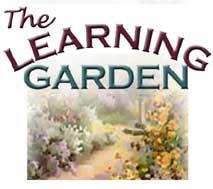
From Seed to Seed:
Plant Science for K-8 Educators
 |
From Seed to Seed: |
|
|
B. Curriculum Activities Throughout the course, we provide student-centered, experiential activities
to support students' grasp of certain plant concepts. We hope that you
will use these activities to spark student interest in science and plants,
modifying and expanding them as you become more comfortable with the material.
Please share your experiences, new ideas, and modifications [email protected]
with us so we can enlighten other teachers with your stories. Each activity begins with a section titled "Planting the Seed." This
section includes probing questions intended to encourage students to share
their ideas and reveal their preconceptions so you can better focus the
activity. These questions-and any others that we suggest you ask your
students-are in italics. The National Science Education Standards (www.nap.edu/readingroom/books/nses/html/)
emphasize that "from the earliest grades, students should experience science
in a form that engages them in the active construction of ideas and explanations
and enhances their opportunities to develop the abilities of doing science."
Many of the activities presented in this course are designed to encourage
this teaching of science as inquiry. Following the National Science Education
Standards, the activities encourage students to "begin with a question,
design an investigation, gather evidence, formulate an answer to the original
question, and communicate the investigative process and results." To help
you guide the investigative process, we have included "Teacher Information,"
"Necessary Materials," and "Procedure" sections. Although many of the
activities present step-by-step procedures, the intent is for students,
whenever appropriate, to design their own investigations. Each activity
ends with "Harvesting the Crop." Here, we provide opportunities for students
to demonstrate their acquired knowledge by applying it to new or expanded
situations. The activities were designed using Dr. Howard Gardner's theory of multiple intelligences. As a result, these activities prize all of the abilities that a learner possesses. Through the activities, students will be encouraged to further develop their 1) reading and writing skills through conducting library/computer research, keeping a journal, and making presentations (linguistic intelligence); 2) motor skills through gardening and cooking activities (bodily/kinesthetic intelligence); 3) mathematical and logical thinking skills by measuring/charting plant growth and designing practical experiments (logical/mathematical intelligence); 4) artistic capabilities by drawing and building models of plants (spatial/visual intelligence); 5) ability to work together (interpersonal intelligence); and 6) ability to observe, understand, and organize the characteristics of and patterns in the natural environment (naturalist intelligence).
Would you like to know more?
|
||||
|
Made possible by a grant from Oracle Corp. Copyright 2001, National Gardening
Association, Inc. For questions regarding this web site, contact Webmaster |